A Reflection for the 18th Sunday in Ordinary Time Year C
What if Abel, the “good” brother in the Bible’s first murder story, was actually disobeying God’s instructions? What if Cain, the “bad” brother, was trying his hardest to follow them? And what if solving this ancient murder mystery is the key to understanding why we may feel gut-punched this Sunday when the first reading suddenly declares, “Vanity of vanities! All is vanity!”?
The Sunday Slap

When I opened this Sunday’s readings, those words hit me like a slap in the face. Here I was, still dwelling in last Sunday’s delight where Jesus invited us to call God “Daddy”, and suddenly – vanity of vanities? I could feel my heart shrinking, that familiar Catholic fear creeping in. Then Psalm 89 (90) piled on: “You turn us back to dust… You sweep us away like a dream…” By the time I reached Paul telling the Colossians “you must kill everything in you that belongs only to earthly life,” I was feeling breathless, accused, called out. Where was I in all this? What had I done wrong?
In such a setting, the Gospel felt almost like mockery. Jesus said, “My friend, who appointed me your judge or arbitrator?” Really? After all this talk about separation of good from bad, suddenly Jesus refused to judge? What on earth was going on?
So I took a deep breath, invited the Holy Spirit in, and said: “Okay, let’s work this out together. Beginning with the very first word – what is actually vanity?”
Two Breaths, Two Lives
I opened my super cool Logos Bible app (yes, I’m that kind of nerd) and quickly discovered that the Hebrew word for “vanity” is actually hebel, which means “breath” or “vapor.” But wait a moment – there is another Hebrew word for breath: ruach, the breath of God. Ruach is the Spirit that moved over the waters at creation (Genesis 1:2) and the wind that gave life to dry bones (Ezekiel 37:9).
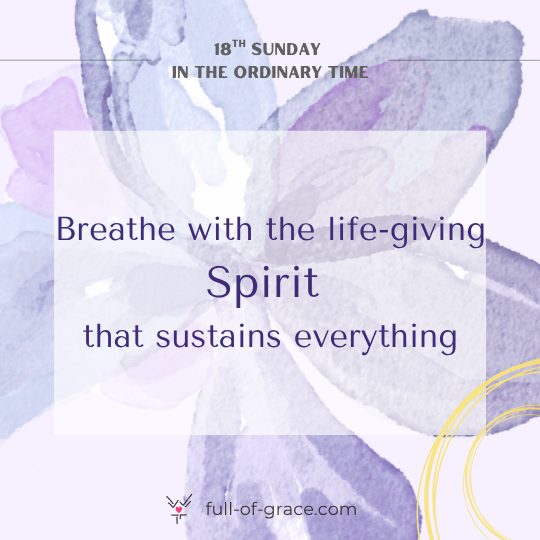
Hebel, on the other hand, is the breath of transience, like morning mist that appears and vanishes.
If I get to choose, I prefer to breathe with ruach rather than hebel. Not with vapor that disappears, but with the life-giving Spirit that sustains everything. Yet how do we move from one breath to the other?
That’s when I stumbled across a fact that stopped me cold. Abel – you know, the “good” brother from Genesis we’re all supposed to admire? His name literally means hebel. Vanity. The good brother is named “Vapor.”
Suddenly, I thought: maybe stepping back and looking closer at this story I approach way too familiarly might give me some answers about what vanity really means in my spiritual life.
Detective Work: The Evidence Doesn’t Add Up
So let’s have another look. What really happened between these two brothers?
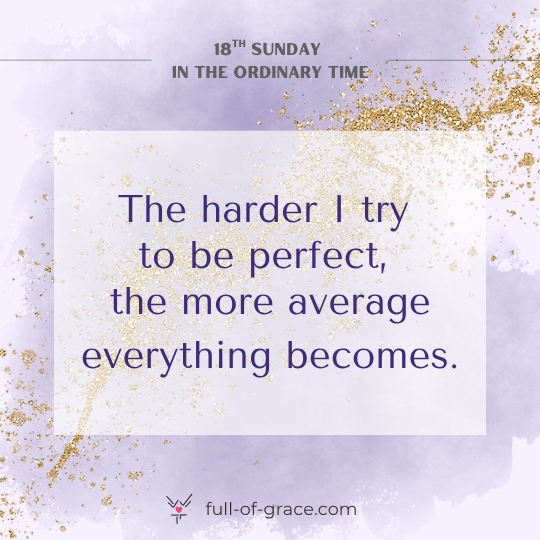
Here’s what we know: Abel was a shepherd. Cain tilled the ground. But wait a minute – after Adam and Eve were kicked out of Eden, God specifically commanded them to work the cursed earth “by the sweat of your brow” (Genesis 3:17). Cain was actually fulfilling that instruction! So how come when he brought his offering, it didn’t please God? Sure, Abel brought “the best portions of the firstborn,” while Cain brought “some of his crops” – but isn’t this a pretty good representation of our own reality? The harder I try to be perfect, the more average everything becomes.
Additionally, the rabbinic tradition tells us things the simple Sunday school version leaves out. According to ancient commentaries, Abel was actually the stronger brother. When they fought, Abel overpowered Cain and had him pinned down. But then – in a moment of mercy – Abel let him go. That’s when Cain struck.
So let me get this straight: The “good” brother is named Vanity, avoids God’s direct instruction, but somehow brings better offerings. The “bad” brother follows God’s directive exactly, works harder, but produces mediocre results. And when push came to shove, the victim was actually physically stronger than the murderer. How to make sense of it?
Unless the first biblical murder mystery isn’t really about two different people at all?
The Brothers Within: My Internal Civil War
Maybe it’s just me, but I recognize both these brothers living inside me. For years, I’d swing between them like a pendulum. At times the Cain in me would take over completely – I’d come up with these elaborate spiritual schedules: getting up at 4 AM for morning pages, then an hour of meditation, then the Liturgy of the Hours, then a holy hour, then somehow fit Mass in there, plus journaling, physical exercise, maybe a run. I’d try to sanctify every area of my life – preferably starting a diet too, and staying up late praying through the night like Jesus did, yet somehow being sustained to serve the next day. Maybe I’d manage for a day (miraculously), but I’d already give up the next morning, and by the end of the week I’d be completely frustrated and unhappy with myself.
So I’d swing to the other side. I’d go to the sacrament of reconciliation, gain some insight about my unrealistic expectations, and then drift toward the Abel in me. At first this felt better – more spiritual, more free. Yet hebel means vapor, mist, something that disappears. The part of me that tried to avoid all structure, all practice, all the “hard work” of faith – thinking I could just “be with God” with no liturgy, no seasons, no community – that was just as unsustainable. Abel brought his beautiful offering once. Just once.
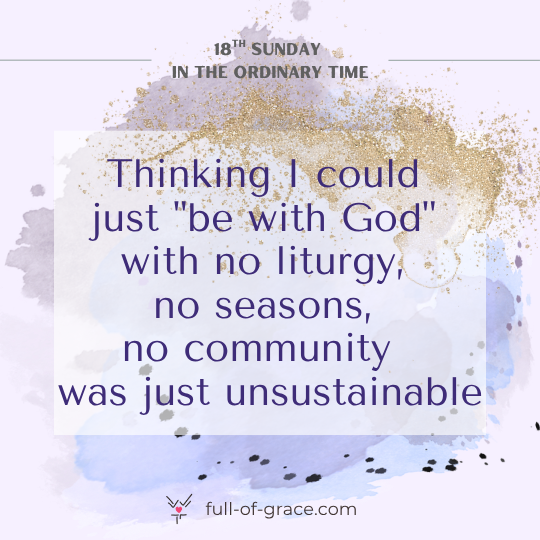
Trying to preserve the Abel qualities inside me, I’d again struggle to fit them into tickable boxes. For example, I’d go for a walk, really enjoy it, come home and think: “Okay, that was pleasant. So from now on, every day from 5 to 6 PM, I will walk from this point to that point and I will enjoy it!” Back to the Cain within me. Something worked naturally, but I didn’t really know what worked or how to make it reliable for future use, so now let me force it into a plan.
It was like trying to schedule a relationship: cuddling with my husband from 7-8 AM, holding hands from 8-9 AM, kissing from 9:00-9:15 AM… I know relationships don’t work like that, and yet so often I’d try to structure spiritual aspects that, in a real bond, flow naturally out of love. But because God is invisible, I kept trying to substitute his presence with practices that were supposed to force him to appear in my life.
Maybe you’re different. Maybe I’m talking just about myself and you’ve figured this out. But I spent decades trapped in this civil war between my Cain and my Abel: I kept murdering the gifts in myself, oscillating between grinding effort and spiritual bypassing.
So maybe that’s what Jesus means when he says “Who appointed me the arbitrator of your claims?” Maybe he’s saying, “You want me to choose between Cain and Abel within you? Neither is the way. There’s a third way.”
The Third Son: Beyond the Pendulum
After Cain and Abel, after the murder and exile, another son was born: Seth. And the Bible states: “At that time people began to call upon the name of the Lord” (Genesis 4:26).
Not when Cain was being perfectly obedient.
Not when Abel was offering pure gifts.
But when Seth was born – when something beyond the oscillation between earning and receiving emerged.
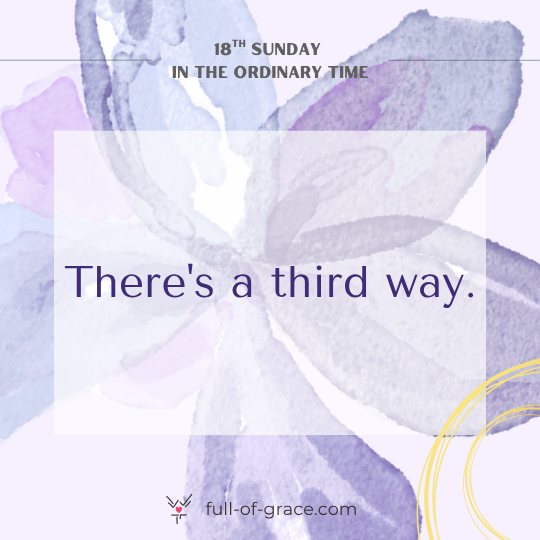
Yet what does it mean to call upon the name of the Lord? Well, it means abandoning our own name for the sake of the Lord’s name. The book of Genesis clearly distinguishes between Seth’s righteousness and Cain’s wickedness. Seth doesn’t take Abel’s place on the other side of the pendulum. With the birth of the third son, there is no continuum between vapor and structure but a clear contrast between Seth’s and Cain’s heritage. Cain’s line produces bigamy and murder while Seth’s line introduces prayer, righteousness, and walking with God. The greatest distinction, however, is Seth’s devotion to the Name of the Lord versus Cain’s effort to build a name for himself (for example by establishing a city named after his son, Enoch – Genesis 4:17).
Only through Seth’s dedication can we fulfil Paul’s instruction about living out our baptismal identity, as we hear it this Sunday: “You have put on a new self which will progress towards true knowledge the more it is renewed in the image of its creator; and in that image there is no room for distinction between Greek and Jew, between the circumcised and the uncircumcised, slave and free.”
Seth represents the end of comparison, because when Seth consciousness is born in us, we stop asking “Am I Cain or Abel? Am I the good one or the bad one? Am I earning heaven or am I lacking spiritual gifts?” We simply call upon the name of the Lord and fix our gaze on him.
The Silver Mirror: What’s Blocking Our Vision?
There’s an old rabbinic story about a rich man who asked why he couldn’t see God. The rabbi held up a piece of clear glass and asked, “What do you see?”
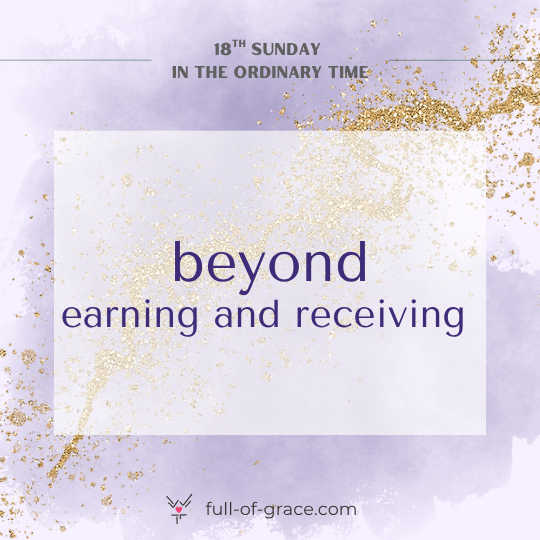
“People, trees, the world around me.”
Then the rabbi covered the glass with a thin layer of silver, turning it into a mirror. “Now what do you see?”
“Only myself.”
The silver layer – whatever it is in our lives that makes us see only ourselves – must be removed. It might be our wealth (like in the Gospel this Sunday), our achievements, our spiritual practices, even our sins when they become another form of self-obsession.
Paul writes to the Colossians: “You have died, and your life is hidden with Christ in God.” This isn’t about moral perfection; it’s about the end of the self-focused life. Whether we’re absorbed with our failures or our successes, our sins or our righteousness, we’re still polishing the silver mirror.
The Practical Path: Looking Up While Being Bitten
Instead, we need total abandonment of our egos for the sake of walking with God. Only that total surrender produces a quality of silence in which we’re not making a name for ourselves, but simply allowing images to flash across the mirror of our souls without jumping into any identity – neither sinner nor saint, neither Greek nor Jew, neither Cain nor Abel.

It’s removing whatever silver layer – earthly riches, spiritual achievements – keeps us from being face-to-face with the only One who can truly call us by name. This means total dependence on God’s grace (while actively cooperating with it), and it is a scary place – like walking among poisonous snakes.
When the Israelites were bitten by snakes in the wilderness, God told Moses to make a bronze serpent and lift it up. Those who looked at it would live. This is perhaps the strangest healing story in Scripture, and a super counterintuitive one too! When we’re being bitten by the snakes at ground level – our failures, our struggles, our spiritual inadequacies – it’s only natural to want to focus on whatever gives us pain. And yet, the healing doesn’t come from looking down at the wounds or fighting the snakes. It comes from lifting our gaze to the serpent on the pole, the foreshadowing of Christ on the cross.
We need to become so focused on Jesus that all the pain falls into the background and suddenly, paradise emerges out of the cross.
Paradise Found: The Eschatological Vision
We often think the kingdom of God will come through dramatic upheaval – apocalyptic earthquakes and trumpet blasts. But what if the kingdom comes eschatologically, that is gradually, through our daily choices to call upon God’s name instead of our own?
What if we just keep bringing heaven down to earth through our deeds, our love, our choosing of Christ’s identity over our own? What if one morning we wake up and realize we’ve been walking in paradise all along, but the silver layer of self-preoccupation kept us from seeing it?
Who Is Breathing Within Me?
“When Christ who is your life is revealed, then you too will be revealed with him in glory” – Paul promises this Sunday.

The vanity that Ecclesiastes diagnoses isn’t nihilistic despair. It’s the accurate assessment that all our oscillations between Cain and Abel consciousness are ultimately hebel – vapor that appears and vanishes.
But when we discover that our very breath is God’s ruach, when Seth is born and we learn to call upon the Lord’s name instead of building monuments to our own, then even our brief existence takes on eternal weight.
We don’t outdo our humanity; we discover that our humanity was always meant to be the space where God breathes.
Lord, you are the eternal continuum of my breath.
This is the freedom Paul promises: no longer defined by any earthly category, no longer trapped in the Cain/Abel civil war, but simply the beloved child of Abba, breathing with the breath of God.
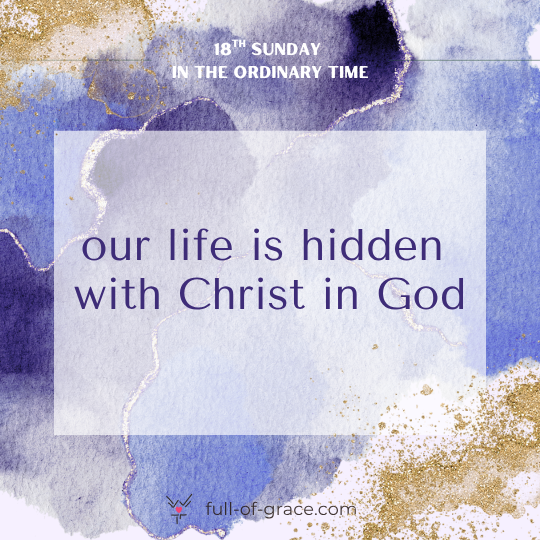

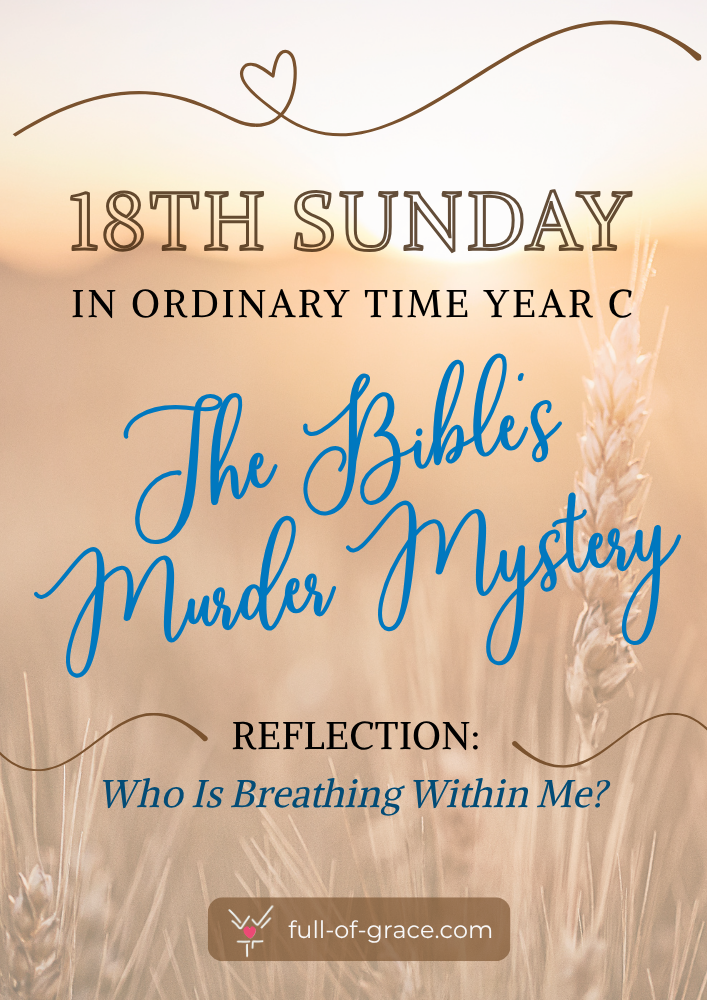

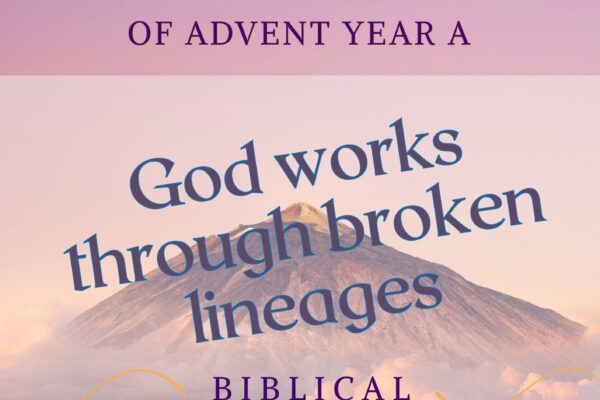
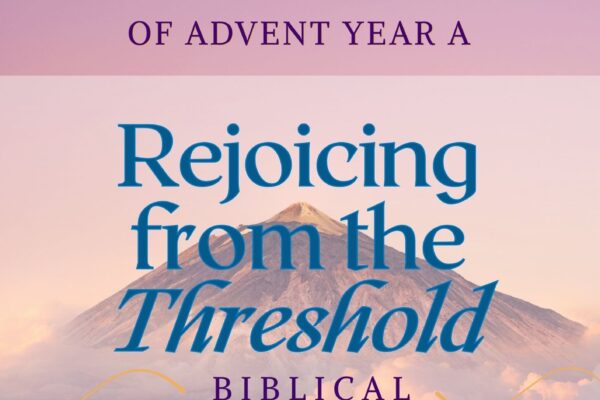


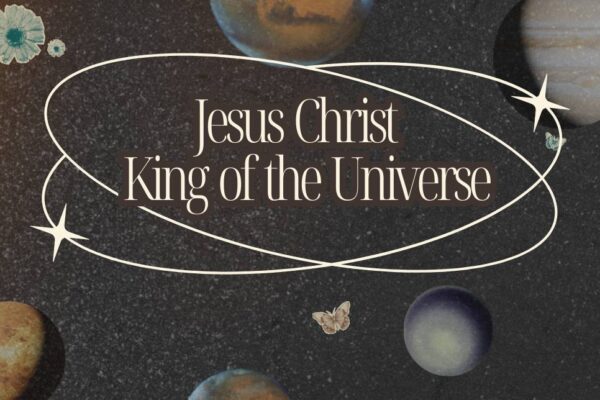


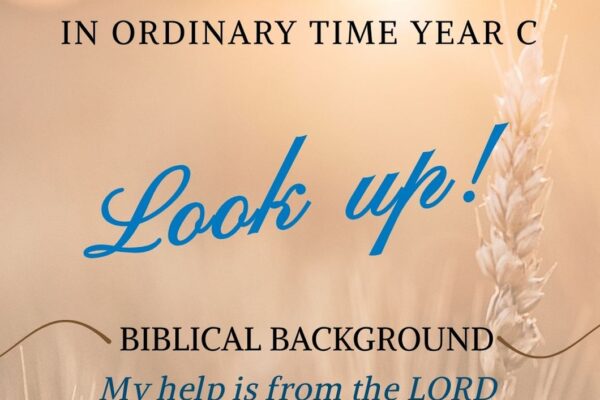
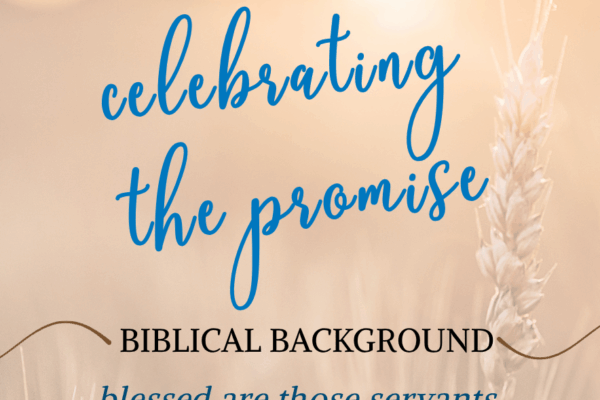

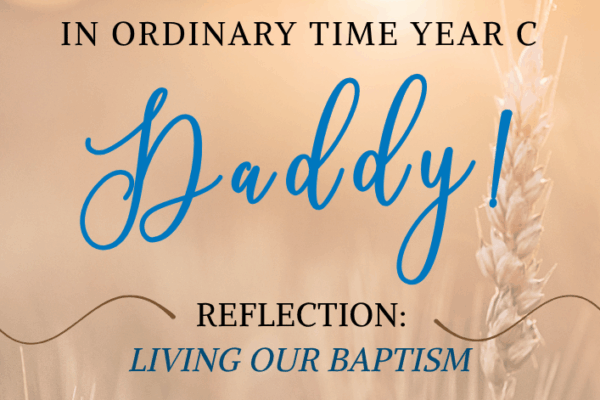
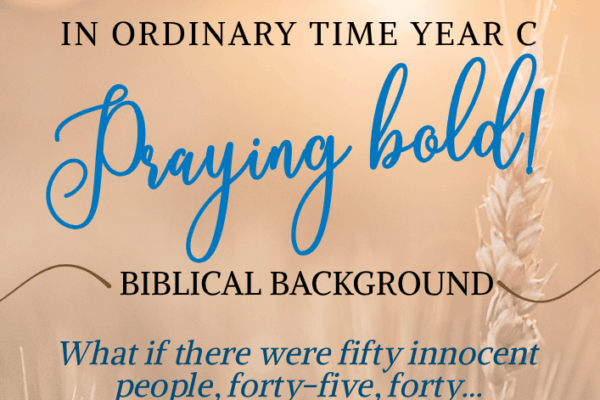
4 thoughts on “A Silver Mirror and Biting Serpents – Solving the Bible’s First Murder Mystery”